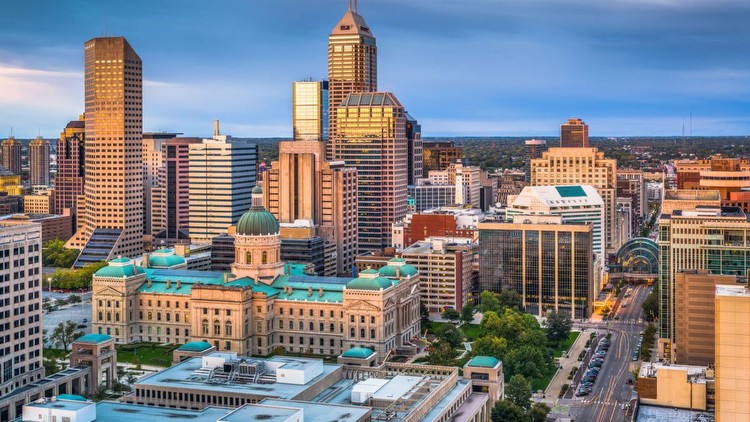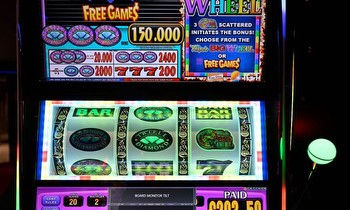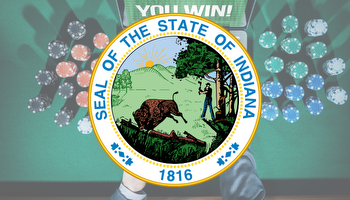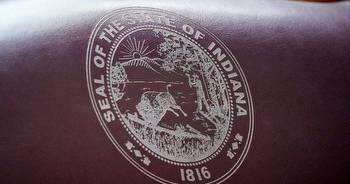Study Makes Case for Online Casino Wagering in Indiana

Indiana gaming regulators are evaluating the potential inclusion of internet casino wagering.
The Indiana Gaming Commission has teamed up with Spectrum Gaming Group to deliver an updated study on the potential impact of internet casino gaming in the Hoosier State. In 2022, the IGC summoned Spectrum to conduct a study on iGaming in Indiana and, a year later, the regulator requested an update from the consultancy company that included recent data.
The update paints a picture of what the addition of iGaming to Indiana’s gaming market could look like for a state that reported a total sports betting handle of $513.6 million last November.
As of Jan. 9, eight jurisdictions across the United States have legalized iGaming. The three largest markets — Michigan, New Jersey, and Pennsylvania — each generate more than $1.6 billion in gross gaming revenue annually making them comparable gaming markets to Indiana.
The Hoosier State, which has a population of approximately 6.8 million, could emerge as a promising iGaming market according to Spectrum’s three-year revenue projections. Spectrum’s projections are based on estimated spend per adult, spend as a percentage of personal disposable income and spend as a percentage of gross state product. Spectrum estimates that the average of those three methods could see Indiana generate roughly $489 million in iGaming revenue in the first year of legalization. Year Two could see the Hoosier State collect $696 million in revenue from iGaming while the state could post $880 million in revenue the following year.
Collectively, the Indiana iGaming market could generate $2 billion in revenue in its first three years.
The potential iGaming revenue could provide favorable gaming-tax receipts. Spectrum’s study estimates that a 20% tax rate in Indiana on iGaming revenue could generate $82 million in tax receipts in the first year of legalization. Those results could increase to $126 million in year two behind the same tax rate, while year three could finish with roughly $165 million in tax receipts.
A higher tax rate in Indiana has also been considered. iGaming in Indiana that is taxed at a 45% rate could garner $286 million in tax receipts in the first year of legalization. The following year, Spectrum estimates tax receipts to close at $340 million, while year three could reach $420 million. Indiana is projected to post $1 billion in tax receipts over the entire three-year period.
The consideration of iGaming in Indiana could create employment opportunities for residents.
Indiana’s job market could benefit from iGaming as the industry could create employment opportunities through live dealers who work in brick-and-mortar studios. Spectrum concludes that iGaming will not impact the ability of retail casinos to maintain a workforce. For example, a gambling operator in New Jersey added 80 jobs in iGaming following the state’s launch of online casinos in 2013. The unnamed operator, which also has market access in Indiana, created new job opportunities in iGaming that included roles in customer service and operations. Swedish gaming company Evolution AB, which employs live iGaming dealers, believes it could create up to 800 iGaming jobs in Indiana. As of December 2023, Evolution employs 2,260 live dealers across five studios in the U.S.
Another unnamed operator has also benefited from iGaming. The operator used marketing tools to incentivize iGaming players to visit retail casinos, which then resulted in increased casino employment. As a result, the operator established 13 new jobs, which have an annual payroll of $552,000.
The potential inclusion of iGaming in Indiana has sparked cannibalization concerns due to the desire to maintain the success of retail casinos. Despite the concern, Spectrum has identified trends related to the performance of states with both iGaming and retail casino wagering. In 2020, Pennsylvania retail casinos generated $1.8 billion in revenue while iGaming revenue closed at $566 million. The following year, Pennsylvania retail casinos reported $3.2 billion in revenue with iGaming operators collecting $1.1 billion. A similar trend was identified in New Jersey as the state’s retail casinos posted $1.5 billion in revenue in 2020 with iGaming revenue at $970 million. In 2021, retail casino revenue grew to $2.5 billion with iGaming closing at $1.3 billion.
The Indiana iGaming market could take a similar upward trajectory. Until legislation is implemented in Indiana, state lawmakers will consider iGaming as the industry expands and operators make their case. Despite previous failed attempts, including a proposed bill in 2023, iGaming will continue to be at the forefront of discussions regarding the Indiana gaming market.































